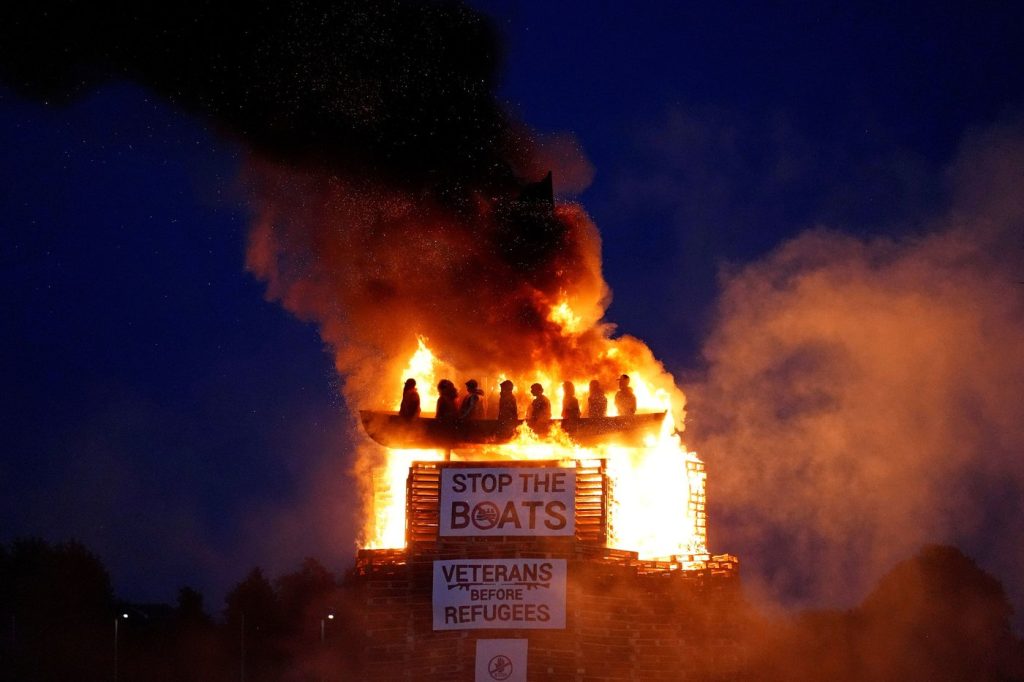LONDON (AP) – Authorities in Northern Ireland are currently investigating a controversial bonfire that included effigies of migrants in a boat along with a banner that read "stop the boats." This inquiry aims to determine if the situation constitutes a hate incident. The bonfire was located in Moygashel, a village in County Tyrone, approximately 40 miles west of Belfast, and was ignited on Thursday night.
The display has sparked outrage among church leaders and political figures, who expressed their discontent prior to the bonfire being lit. This incident occurs against the backdrop of heightened tensions in Northern Ireland, particularly following outbreaks of anti-immigrant riots in the previous month, fueled by the arrival of an increasing number of individuals from Eastern Europe.
The Police Service of Northern Ireland stated that they refrained from intervening before the bonfire was set ablaze due to legal limitations dictating their actions. In the days leading up to the Twelfth of July, a significant number of bonfires—estimated to be around 300—are traditionally lit as part of the celebrations commemorating the victory of Protestant King William III over the deposed Catholic King James II at the Battle of the Boyne in 1690. This pivotal battle is regarded as a marker that solidified Protestant dominance in Ireland.
While many within the Protestant community celebrate this historical victory as an important cultural event, it often exacerbates tensions with the Catholic population, who vehemently oppose the ongoing British rule in Northern Ireland. Past bonfires have stirred controversy because of the flags, effigies, or election posters that are frequently placed on them prior to ignition.
The Police Service of Northern Ireland is deploying officers throughout the weekend, pledging to take "firm and proportional action" to ensure public safety during these events. Chief Constable Jon Boutcher emphasized the importance of celebrating cultural events in a manner that respects the diverse backgrounds and cultures of all residents in these neighborhoods. He affirmed, "There is no place for hate or intimidation—only space for celebration that welcomes and celebrates, not divides."
Historically, the six counties constituting Northern Ireland remained part of the United Kingdom after the majority of Ireland achieved independence in 1922. The population in this region is predominantly divided along religious lines, with mainly Protestant unionists advocating for the continuation of ties with the U.K., while primarily Catholic republicans push for reunification with the Republic of Ireland.
This investigation into the Moygashel bonfire sheds light on the underlying tensions and societal issues surrounding immigration and cultural identity in Northern Ireland, highlighting the ongoing challenges faced by communities trying to navigate their historical legacies and contemporary realities.











